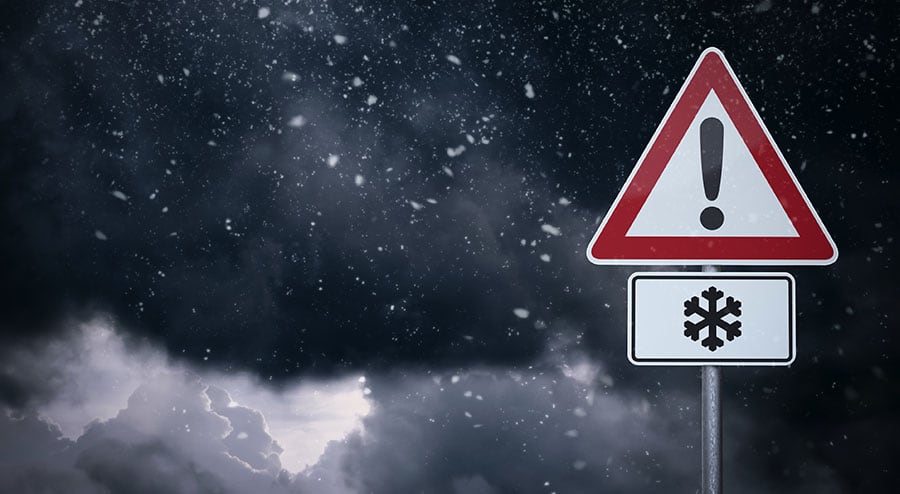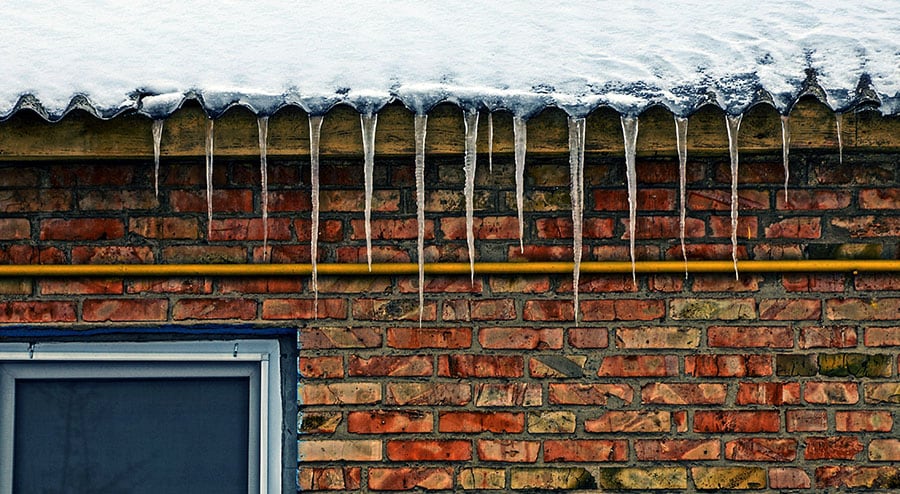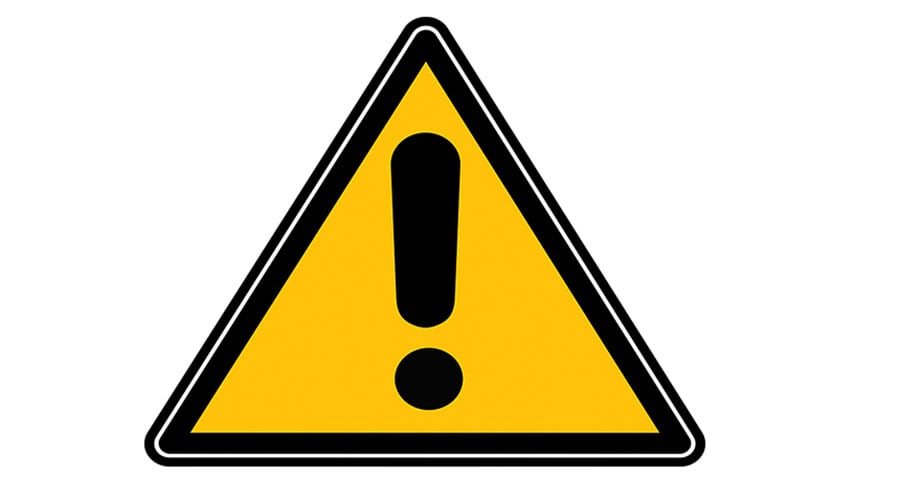When a pipe burst or it freezes you are facing an emergency. A damaged pipe can cause major damage not just to your home but your household contents. A pipe is most likely to become damaged during very cold temperature and during long freezing winters. Pipes that are in the outer walls of your home and those that are in unheated areas are most likely to be affected.
The damage caused can be costly and a serious inconvenience but preventative measures can be taken to avoid damage in the first place. We have put together this short guide to help you avoid the hassle and stress of a burst pipe damaging your home.
The first measure you can take if you notice you have a frozen pipe to ensure it does not burst is to attempt to thaw it out. You will be able to identify a frozen pipe that has not burst by when you turn on the taps and notice that there is either no water or just a small trickle. At this stage, you can call in the services of a professional or, alternatively, try to thaw the pipe yourself by following a number of steps.
Look around for the affected pipe. It will usually be surrounded by ice and frost or it may already be swollen from the pressure. An exposed pipe is much easier to deal with and you can take simple steps such as placing a heater near to the pipe or using a hair dryer until you can see that the ice has thawed. You could also wrap electrical heat tape around the pipe until the pipe has thawed.

Repairing a Burst Pipe
If you find that the pipe has burst, however, the first thing you need to do is to deal with the water damage. Turn off your main water supply immediately. You should also flush all the toilets in the home as well as turn on the cold water taps to remove the remaining water from the pipes. Burst pipes can result in a huge amount of water being expelled in a short space of time.
Controlling the water is the first step. Once you have dealt with this, the next step is to identify the area of the pipe that has burst. If you find that there is just a small crack in the pipe you can fix it with a temporary solution prior to replacing the section that has been damaged. If you are particularly good at DIY, then you could take on the job yourself, but most people choose to call in a professional plumber who will do the job for you.
You can deal with water damage by calling in a professional company immediately who will work to remove the water quickly and effectively thus minimizing the damage to your home and possessions.
Why Do Pipes Burst?
Before we look at the measures you can take to prevent damage to pipes, we will take a look at the reasons that pipes can burst. The four main reasons for bursting pipes are:
- Frozen Pipes
- Moving Pipes
- Water Pressure
- Corrosion
We will take a look at causes and the steps you can take to deal with burst pipes in the next section of this guide.
Freezing Temperatures
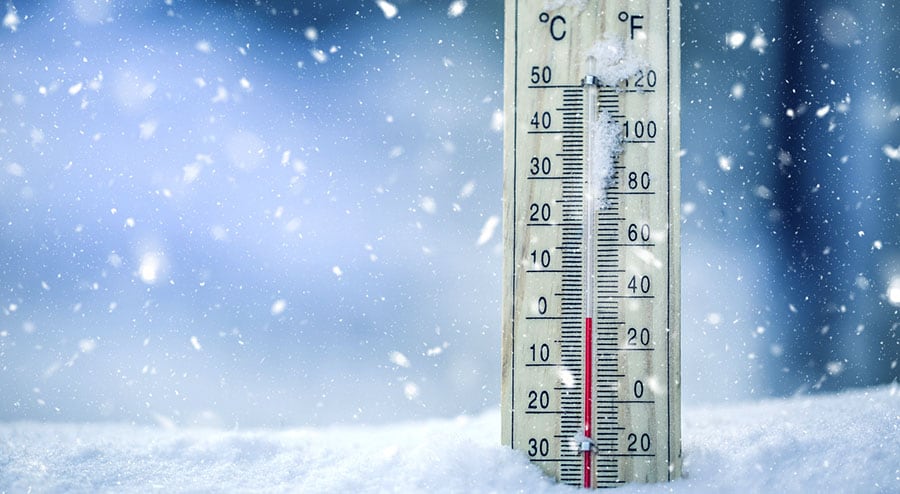
The problem with extreme cold weather is that when the water freezes and becomes ice it expands in your pipes. As the ice expands, it causes a buildup of pressure in the pipes which cannot be contained and causes the pipe to burst. It can occur anywhere in the pipe but weak joints in the piping are especially susceptible to bursts.
Tips
You can prevent this type of damage occurring during cold snaps by turning on faucets and releasing a steady flow of water. This helps to ensure that water remains moving through the pipes and should stop a pressure buildup.
Frozen pipes can be prevented by insulating any water pipes that are exposed as these are particularly at risk. You can use pipe sleeves that are made of foam.
Check for signs of pipes that have frozen previously that are in the exterior walls of your home and if you see signs of mold, for example, it may be that a frozen pipe has caused the problem. The likely cause of this type of damage is, once again, poor insulation around the pipes. Rather than waiting for a pipe to burst and cause serious damage, it is a better option to simply call in a professional. They can open up the wall and you can then improve the insulation relatively cheaply. Pulling out the wall will cost a fraction of what a burst pipe would cost you.
If a pipe bursts repeatedly you may have to call in a plumber to reroute the pipe entirely. This problem only tends to occur in very cold climates and by moving the pipe to a southern wall you can put an end to the problem. This can be a costly procedure but if you are affected often it may be your only option.
Check thermometers in your home and make sure that you never allow the interior temperature to fall below 55 degrees Fahrenheit.
A quick and easy step to take is to open cupboard doors around sinks. This measure will allow warmer air to spread near the pipes and help prevent bursts.
Water Hammer Damage
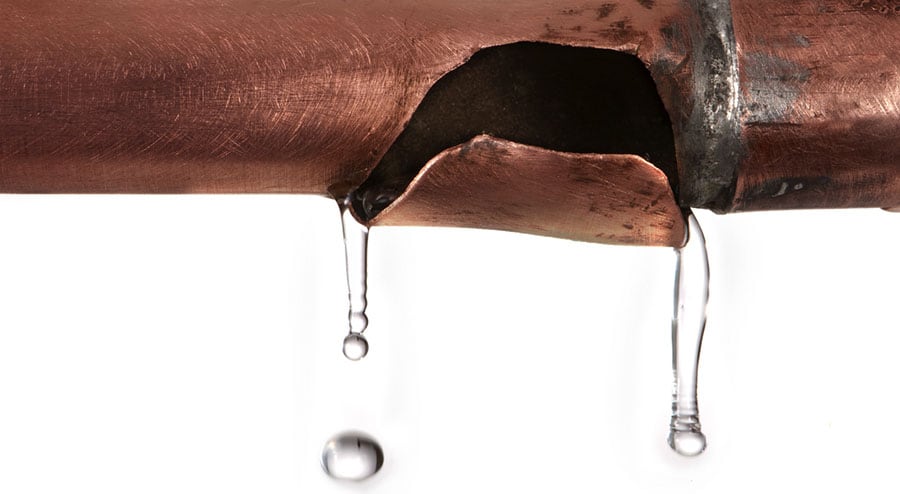
If you have ever heard pipes that bang and clang inside of the home when you turn on the water then this is called water hammer.
Tips
If you hear the sound of water hammer in your home then take steps to have a professional secure the affected pipes. If you don’t you could be looking at a disaster as when the pipes move around they will eventually weaken until one breaks and bursts.
Water Pressure Issues
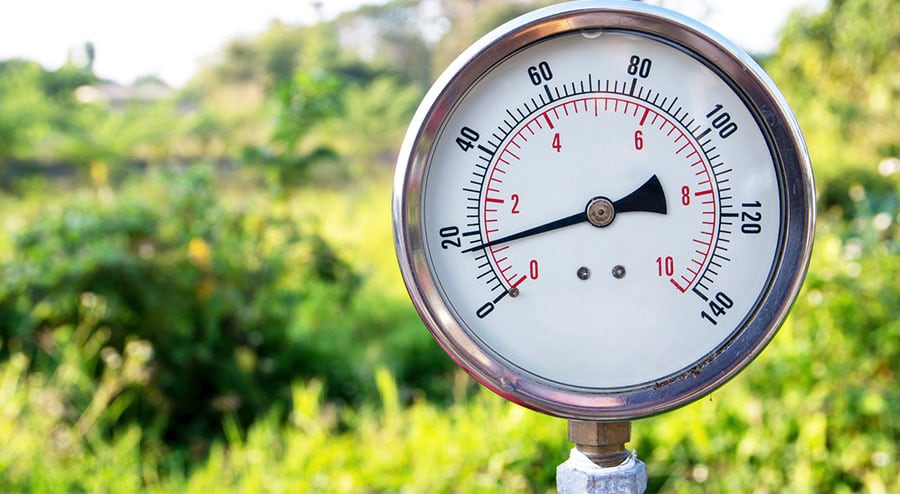
Another problem associated with burst pipes is water pressure. If the water pressure is not kept at the correct levels then a sudden increase in the pressure can cause a burst pipe in sinks and toilets. Simply put if the pressure is too high the pipe will be unable to contain the water and the pipe will burst.
Tips
You can check out the water pressure easily by using a pressure gauge. Simply attach it to the tap and turn on. The gauge will give a reading and you can take steps from there. The recommended water pressure in terms of pounds per square inch (psi) is between 30 and 50 psi. It should not exceed 60 psi. If you have a reading of 60 psi or higher, you need to call in an expert plumber. The plumber will then install a valve to reduce the pressure and prevent bursts.
Corrosion
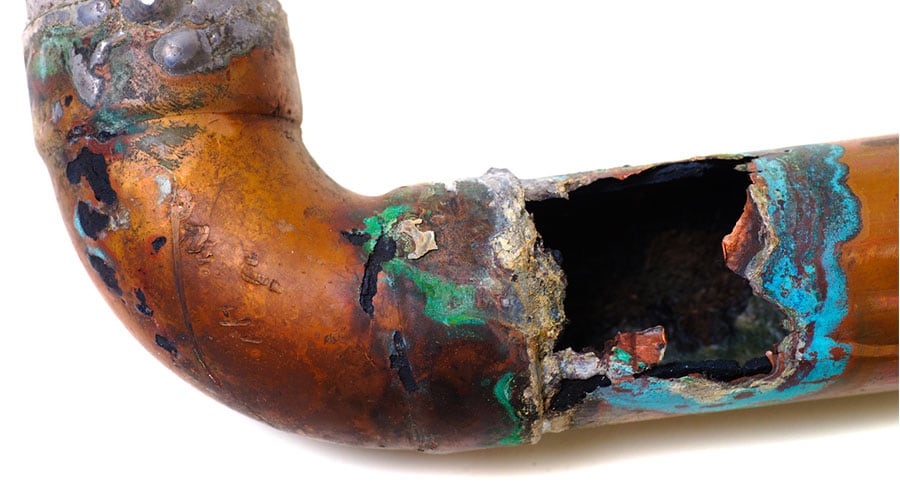
The pipes in your home are usually perfectly fine for many years, but they won’t last forever. Corrosion can occur after years of use. Those affected by this type of damage generally live in areas where there is hard water. Over time, the pH balance of the water will cause corrosion as the coating of the pipes becomes worn. This can also cause lead poisoning which can be harmful.
Corrosion and rust build up will cause your pipes to narrow and eventually a burst will occur or the pipe will just become completely blocked by the rust. Corrosion is inevitable over time and, therefore, not preventable; however, you can slow it down.
Tips
A factor involved in corroding pipes is bacteria such as legionella that is present in the water. Water chlorination is a way to deal with this problem; however, as this method can occasionally increase bacteria in your pipes you will need to call in an expert who will study the water pH levels before treating your pipes.
Preventative Measures for Outside the Home
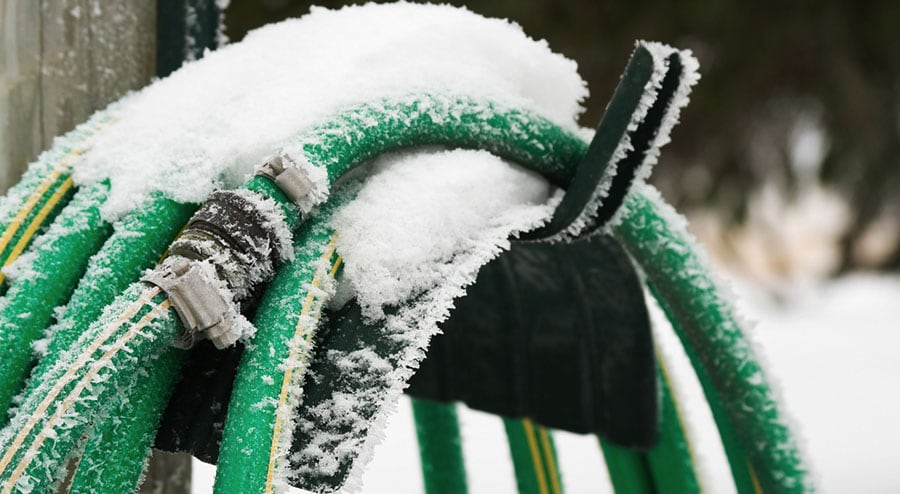
If a frozen garden hose is left, it may possibly cause a pipe to burst. The hose once expanded with ice will cause the pressure in the pipes to build.
Tips
This is one of the easiest ways to protect your home from damage. Simply make sure that before the cold weather comes you disconnect hoses from pipes and store them away safely for spring.
Leaving Your Home over Winter
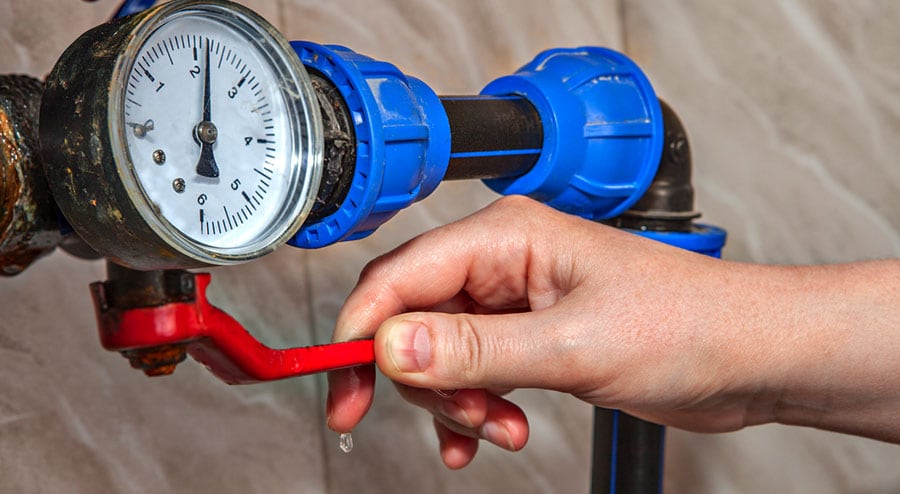
Many people, especially those who have retired, prefer to head for sunnier climates during the cold weather, meaning that their homes are at particular risk of damage from burst pipes. Not just that but since the damage is unlikely to be discovered immediately then the damage can be extensive.
Tips
Once again you will need to ensure that you leave the home heated to no less than 55 Fahrenheit. Before you leave close off your water supply and take the additional step of having a neighbor check your home regularly especially during cold snaps. If you live in a particularly cold area and have had burst pipes in the past then you may want to consider obtaining the services of a plumber to attend your home and carry out an inspection and take appropriate actions if needed.
Be Insured

To avoid costly repairs coming from your own pocket the final and perhaps most important tip is to make sure you are insured before any damage occurs.
Tips
Check your home and contents insurance and make sure that you are covered for damage to pipes.
If you are not covered, you need to update your policy so that you are. Most insurers will cover damage to pipes but not if you leave them unfixed until they do burst so check them regularly for signs of damage. Check the terms and conditions of the policy and make sure you comply with those.


